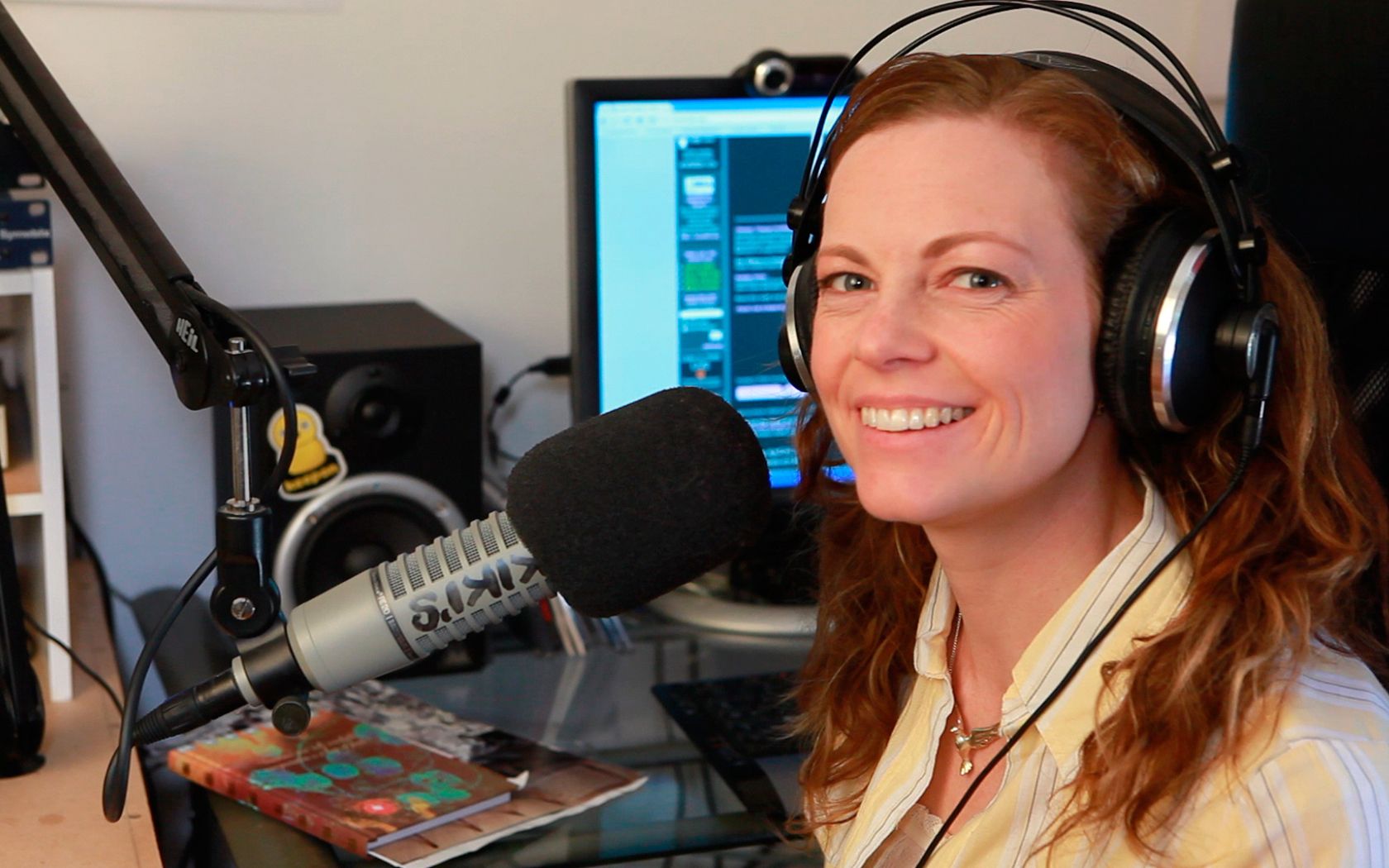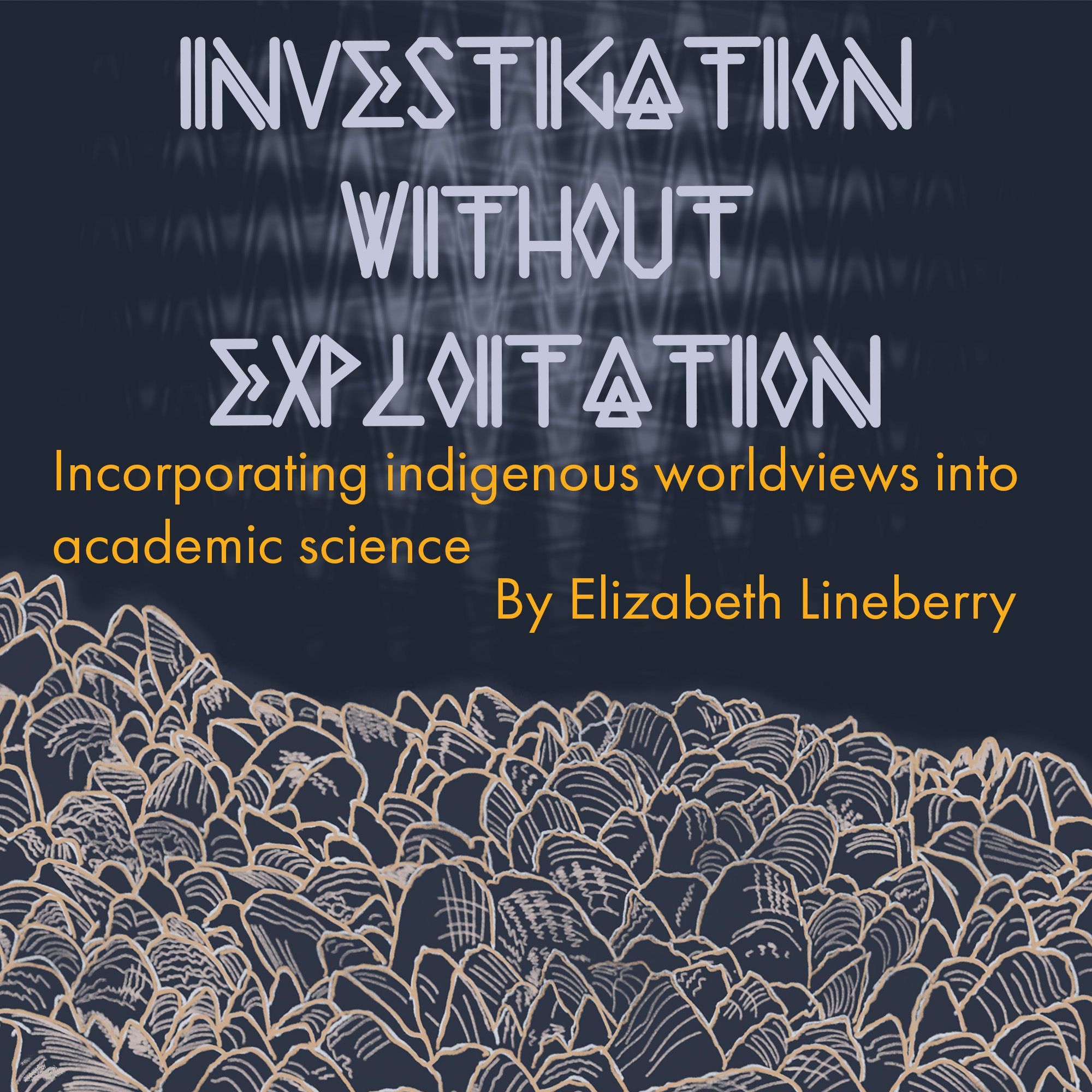
In a recent post, we entreated you to communicate your science. One way to do that is to create a science podcast. I have been getting to know the people behind three of my favorite local science podcasts and think it is time to introduce them to you.
NeuroTalk and Brains and Bourbon
And be sure to watch for my next post, where I will highlight UC Berkeley’s own science show, Spectrum, on KALX 90.7 FM, and share ways that you can get involved in creating a podcast series or episode of your own.
[caption id="attachment\\_10789" align="alignleft" width="300"][](http://sciencereview.berkeley.edu/wp-content/uploads/2014/03/mic1\_3.jpg) Kirsten "Dr. Kiki" Sanford, founder of TWIS.[/caption]
This Week In Science (TWIS)
TWIS was created by Dr. Kiki Sanford in 1999 while she was getting her Molecular, Cellular, and Integrative Physiology Ph.D at the University of California, Davis. Now in its 15th year, TWIS presents science news to the public in an entertaining hour-long show every week.
You can watch TWIS live every Thursday at 8pm PT and view archived episodes here. Follow on Twitter @TWIScience and Facebook, and support on Patreon.
--Q&A with Dr. Kiki Sanford--
Georgeann: Why did you decide to start a podcast?
[caption id="attachment\\_10788" align="alignright" width="300"][](http://sciencereview.berkeley.edu/wp-content/uploads/2014/03/kdvscolor.jpg) Sanford recording an episode of TWIS back when it aired on the UC Davis radio station, KDVS 90.3 FM. Photo by Debbie Aldridge/Mediaworks. Originally appeared in a 2003 Dateline UC Davis article.[/caption]
Kiki: Podcasting was, at the time, the next logical step for This Week in Science. We were already broadcasting on KDVS 90.3 FM in Davis, and posting mp3 recordings of the show on our website. Around 2003 or 2004, we discovered that people were creating these things called RSS feeds, which would allow people to subscribe to our show like one would a magazine. It seemed like a fantastic idea, and we were technical enough to figure it out. Most people discovered podcasting thanks to iTunes, but we knew the platform would be important to small broadcasters and followed the development of the technology closely.
Georgeann: What are a few of your favorite episodes?
Kiki: This is a difficult question to answer, since we recently produced our 450th podcast episode. My favorites always involve interviews with scientists or science writers. For instance, for the 450th episode we interviewed Dr. Steven Palumbi and his son Anthony Palumbi, and had a riveting conversation about the future of the oceans and the amazing life-forms it contains.
I also enjoy episodes that involve a theme. On Valentine's day 2013, we had a hilarious episode involving all sorts of news about sex and reproduction in the animal world. It was a bit risqué, but I haven't laughed so much in a long time.
Georgeann: Do you have a feeling for who your audience is?
Kiki: Yes. Our audience is mainly made up of males from the United States in the 18-49 year old age group. However, we also have many listeners from around the world and across age groups. I would love to grow the female part of our audience, or at least hear more from the women who do listen to the show. Where are the female science enthusiasts? I know you are out there!
Georgeann: What do you think the public wants to know about science?
Kiki: I think there are different groups who want to know different things about science; In reality, there is no "public". There are the science enthusiasts who just want to learn what the science industry is discovering; for them learning is its own reward. Then there are people who might not necessarily know what science has to offer. There are also special interest groups who want to know a lot about something very specific. For everyone, though, I think there are always a few things that capture people's attention: the awe or 'wow'-factor related to humanity's place in the universe and history, the personal factor, and the political/cultural factor.
What we try to do on TWIS is balance information with entertainment, fun, and opinion to help people simply appreciate the complexity of our world and the role of science in our culture.
[caption id="attachment\\_10786" align="alignleft" width="300"][](http://sciencereview.berkeley.edu/wp-content/uploads/2014/03/ctor3.jpg) Sama Ahmed (right) recording an interview at the Cal Academy Halloween Night, 2013. Photo by Liz Unger.[/caption]
Carry the One Radio (CTOR)
CTOR was founded by UCSF graduate students Sama Ahmed, Karuna Meda, and Bryan Seybold in 2009. CTOR releases short interviews with scientists once a month. They are currently working to increase the frequency of episodes and offer additional, story-driven content.
You can find CTOR episodes here. Follow on Twitter @ctoradio and Facebook, and support on Patreon.
--Q&A with Sama Ahmed--
Georgeann: What are your top several favorite interviews you have done? What made those better or more fun to do than others?
Sama: Cori Bargmann and Ed Chapman. Super cool people that made for fun chats. I had dinner with both of them and they are big supporters of our show. Susan Lynch. One of the few non-neuroscience interviews I've done and easily the one that I learned the most in. Rich Schneider, interviewed by Alex Mendelsohn. The science is nuts - it was a fun interview to listen to.
Georgeann: Do you have a feeling for who your audience is? Do you think you are in fact reaching the public, or are you mostly reaching other scientists?
Sama: I think we are reaching mostly non-scientists with an interest in science. Most of our vocal supporters fit this category I think. But to be honest, I don't have a numbers breakdown. It's just a guess based on who comments/emails/likes our facebook page.
Georgeann: I have been thinking a lot about outreach lately, wondering what exactly the public cares about. Curious to hear what you think.
Sama: I think the public cares for stories. The success of Radiolab and This American Life is indicative of that. I don't think the content itself is the driver, but how it is sold. It's a tough lesson that I'm learning; the majority of our interviews are content-heavy with little story to them (it's an interviewing skill that I'm still building).
Georgeann: Are you still enjoying creating the podcast episodes?
Sama: Yes, I am. I get to chat with scientists about their favorite thing---their science! The next thing on the table for me are these spin-off episodes that will be story driven. I want to release more produced content that highlights science-related stories.
Georgeann: Like this recent episode, for example.
[soundcloud url="https://api.soundcloud.com/tracks/139723017" params="color=ff5500&auto\_play=false&hide\_related=false&show\_artwork=true" width="100%" height="166" iframe="true" /]
Georgeann: What are some of your favorite science podcasts?
Sama: Favorite science podcasts include Startalk Radio with Neil DeGrasse Tyson, Story Collider, Titanium Physicists, and Radiolab. Favorite podcasts include This American Life (I love this show) and The Moth. My friend Florie Charles has a videocast called Youreka Science that's pretty cool.
[caption id="attachment\\_10790" align="alignleft" width="300"][](http://sciencereview.berkeley.edu/wp-content/uploads/2014/03/IMG\_0137small.jpg) Brains and Bourbon founders (from left to right) Forrest Collman, Nick Weiler, and Erica Seigneur.[/caption]
NeuroTalk and Brains and Bourbon
Neurotalk, founded by Erica Seigneur, Forrest Collman, and Mark Padolina, features interviews with neuroscientists visiting Stanford. Brains and Bourbon, founded by Erica Seigneur, Forrest Collman, and Nick Weiler, is a boozier conversation about neuroscience. Both of these podcasts are part of NeuWrite West, a graduate student group at Stanford that aims to train scientists to become better communicators, as well as to share neuroscience research with the public. In addition to their two podcast series, the NeuWrite West group writes about recent neuroscience research on the Stanford Neuroblog.
You can find episodes of both podcasts here.Follow on Twitter @stanfordneuro and Facebook.
--Q&A with Erica Seigneur--
Georgeann: Why did you decide to start these podcasts?
Erica: With Neurotalk, the goal is to bring the scientist back into the discussion of science, rather than just focusing on data and results. We try to get the scientists to talk about their personal journey through science---how they first became interested, what was the process of coming up with a certain experiment or question, and how the things they learn through their own work has influenced the way they see and interact with the world. With Brains and Bourbon, the goal is pretty much the same, but we try to go about it in a more casual manner. We try to recreate the way scientists discuss science when we are socializing with each other, when we tend to speak more freely and passionately about what we do than what you might see in a more formal interview.
Georgeann: What has been your favorite interview so far?
Erica: My favorite interview so far was when we spoke with Michael Platt in the second episode of Neurotalk. Mostly it's my favorite because he was such an engaging interview subject, in particular, there's a point in the interview where he talks about how he and his advisor at the time, Paul Glimcher, outlined an experiment in the sand on the beach, which I absolutely love.
[soundcloud url="https://api.soundcloud.com/tracks/76781393" params="color=ff5500&auto\_play=false&hide\_related=false&show\_artwork=true" width="100%" height="166" iframe="true" /]
Georgeann: Do you have a feeling for who your audience is?
Erica: For the most part, I think our audience is largely Stanford students, postdocs, and professors. I think our audience has been expanding to the wider community though, largely due to the great work that Astra Bryant does with the Stanford Neuroblog and through Twitter.
Georgeann: Who do you want it to be?
Erica: Ideally, we would like to reach as wide of an audience as possible. One of the main goals of Neuwrite West (which is the group that produces both podcasts) is to increase and improve communication between scientists and the general public, and hopefully, the podcasts can be an effective avenue for that.
Georgeann: What do you think the public cares about? What do they want to know about science?
Erica: I think the public cares a lot about science, particularly neuroscience. We all have brains, and we're all really interested in understanding how they work.
Georgeann: What are your favorite science podcasts?
Erica: My favorite science podcasts are Radiolab, The Infinite Monkey Cage, Science Friday, and Freakonomics Radio. A really excellent local podcast is Generation Anthropocene, which is produced by a group of Stanford undergrad and graduate students.



